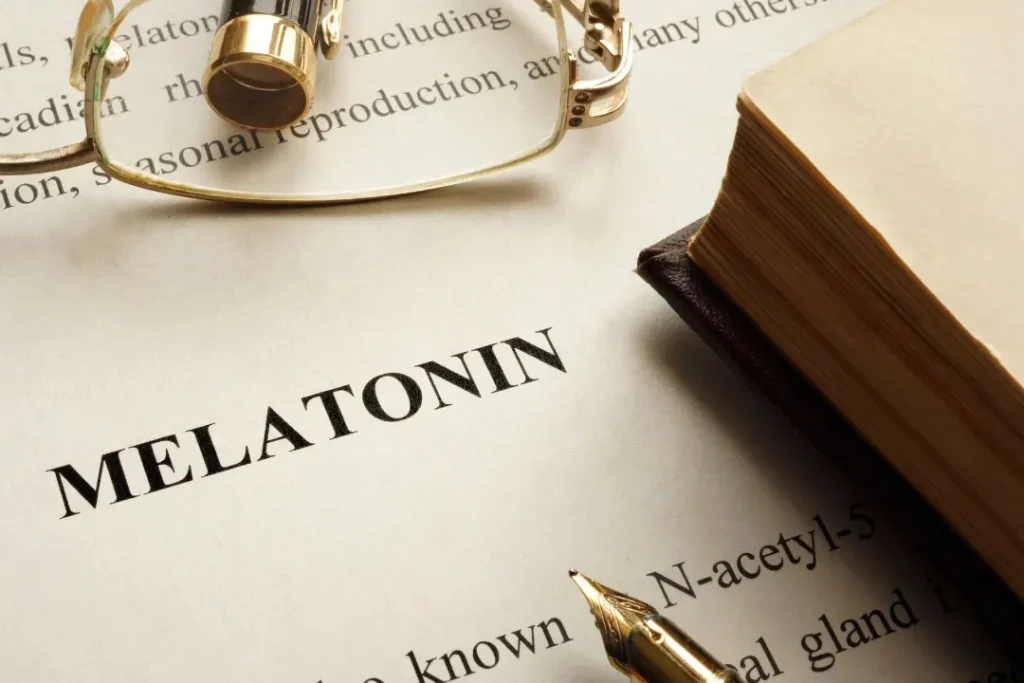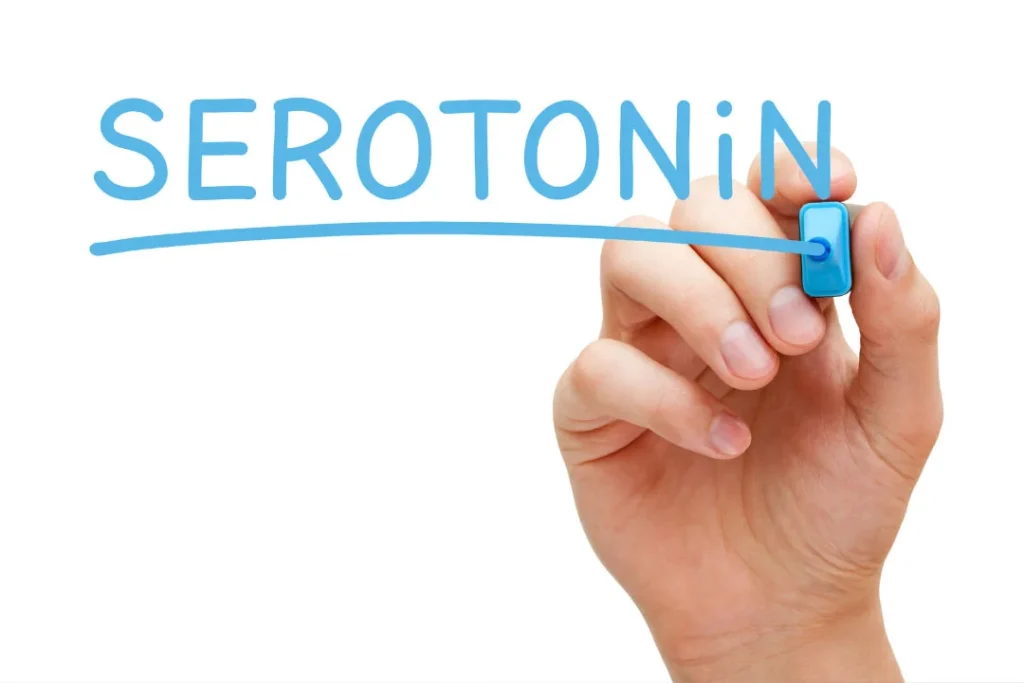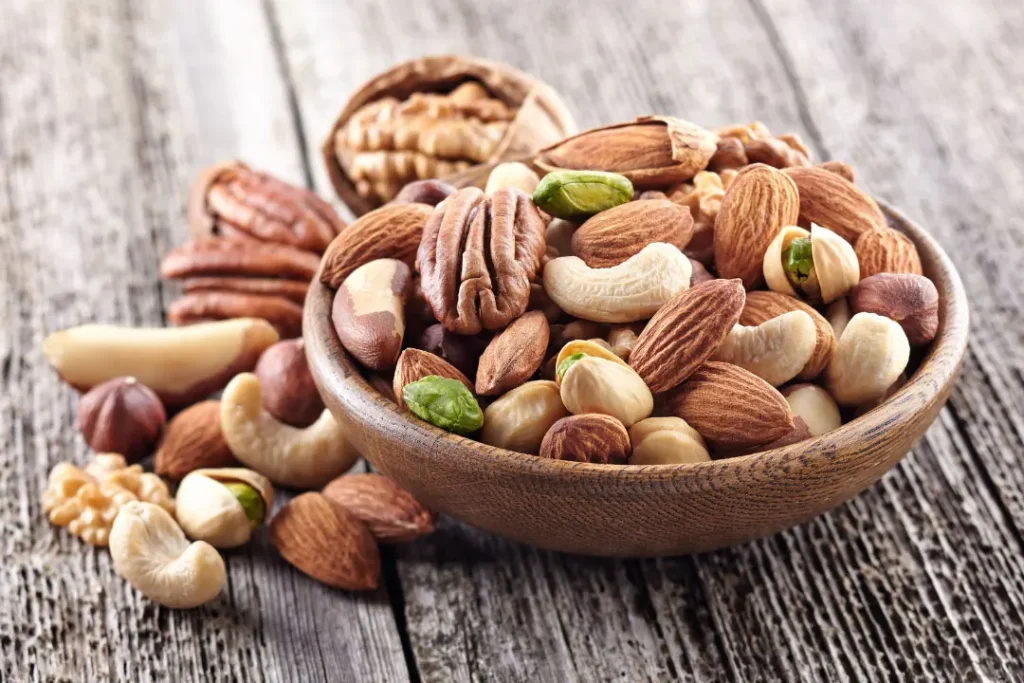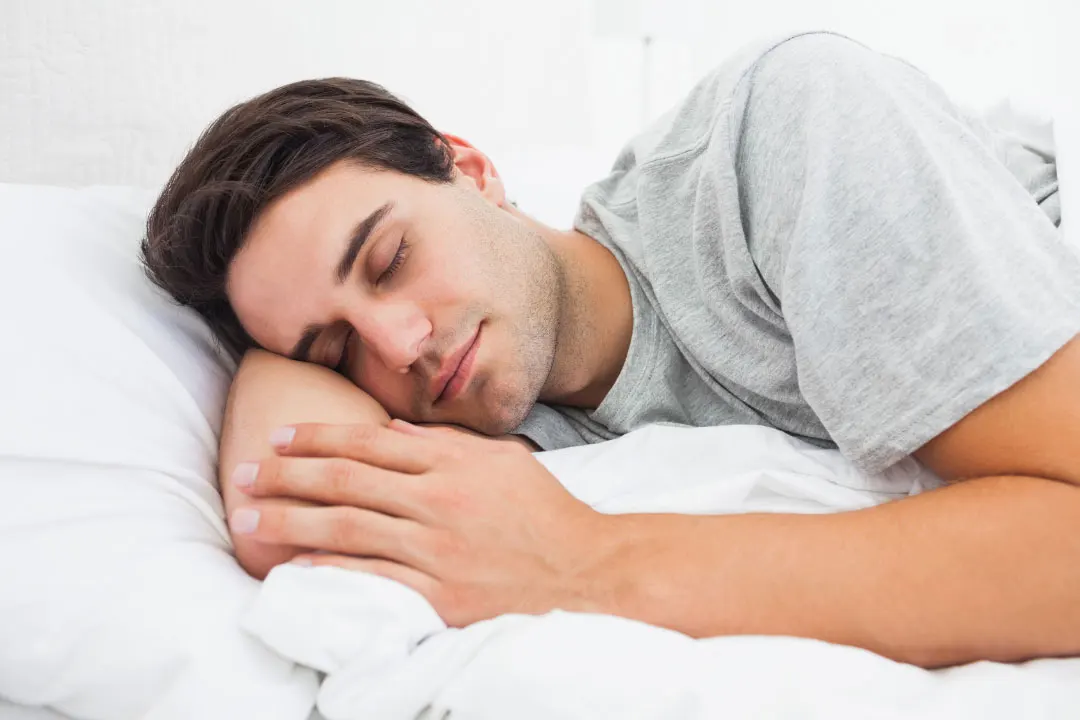Doxepin is an antidepressant medication that is sometimes used off-label for the treatment of insomnia. While its sedative effects may help you fall asleep faster, Doxepin for sleep may cause side effects like drowsiness, dry mouth, constipation, or trouble urinating. We’ll discuss some great natural alternatives to help you get the quality, restorative rest you need.
If you’re struggling with insomnia, the tricyclic antidepressant Doxepin can be a helpful tool for sleep. The drug works on the central nervous system to slow activity in the brain, leading to sleep. However, while some may find using Doxepin for sleep an effective way to catch z’s, a handful of not-so-pleasant side effects might have you thinking twice before seeking a prescription. Among the potential adverse effects are next-day drowsiness, wherein early morning fatigue and trouble focusing can color the first part of your day (or the entire day if you take the pill without getting eight hours of sleep). Other common side effects are dizziness, dry mouth, blurred vision, trouble urinating, and headaches.
Given the numerous adverse side effects that can present themselves when taking Doxepin for sleep, you may want to consider a more natural alternative. These days, many over-the-counter substitutes naturally promote sleep and aren’t accompanied by a laundry list of potential detrimental side effects.
You May Also Like:
Ben Greenfield Sleep Supplements vs. DELTA BrainLuxury
The Best CBD Gummies for Sleep: Equilibria CBD vs Joy Organics CBD
5 Great Alternatives to Doxepin for Sleep: Here’s How You Can Get Quality Rest is an original (News7Health) article.
Alternatives to Doxepin for sleep:
1. Melatonin
You’ll likely encounter many melatonin brands when looking for a natural sleep aid online or in stores. Melatonin is a standard sleep supplement recommendation that may help your body reach quiet wakefulness, making it easier to fall asleep and stay asleep if you take melatonin. While synthetic melatonin might not be the best long-term solution (over time, it can adversely affect the brain’s chemistry), such supplements may provide quick relief from jet lag or sporadic insomnia.

Alternatives to Doxepin for sleep:
2. Omega-3 oils
What we eat affects our health, so it should be no surprise that diet can significantly affect our sleep. A growing number of studies show that diets rich in omega-3 fatty acids, most specifically those from fish, are linked to better sleep quality, a decrease in the time it takes to fall asleep, and more wakefulness the following day. Additionally, fish rich in omega-3s are also chock-full of vitamin D—vitamin D deficiencies that can contribute to chaotic sleep patterns and otherwise disrupt sleep. So while taking Doxepin for sleep is one way to tackle the problem of insomnia, so too is making not-so-radical changes to diet.

Alternatives to Doxepin for sleep:
3. Chamomile
Like melatonin, chamomile is one of the market’s most recognizable natural sleep supplements. A plant native to western Asia and southern and Eastern Europe, chamomile is now most often incorporated into pills or tea. However, chamomile in the form of oils, tinctures, and gummies also makes it an extremely versatile option. Chamomile contains over 120 different compounds, some of which have the same effect on the body as mild tranquilizers; the potential for relaxation and calm prompts eventual sleep. Regarding natural sedatives, chamomile is undoubtedly milder, but it may be effective for those looking for gentle relaxation at the end of the day.
5 Great Alternatives to Doxepin for Sleep: Here’s How You Can Get Quality Rest is the (News7Health) report.
Alternatives to Doxepin for sleep:
4. Glycine
Glycine, an amino acid, is another natural alternative to Doxepin that contributes to swift, deep sleep in various ways. For starters, glycine helps the body produce serotonin, a critical hormone for creating natural melatonin. You’re also likely to have better sleep quality when serotonin levels are high. Glycine can also lower body temperature—a slight decrease in body temperature kicks off the first sleep cycle. Although glycine supplements are available, including this amino acid in a nutritious diet is possible by consuming high-protein foods like meat, eggs, dairy, and beans.

Alternatives to Doxepin for sleep:
5. Tryptophan
Another amino acid, tryptophan, is one of the best ways to improve sleep quality naturally. Tryptophan is the natural precursor to both melatonin and serotonin, which, as previously discussed, are both essential players in sleep regulation. Regrettably, our bodies are incapable of producing tryptophan. Thus, it is necessary to intake it through supplements or certain food items. For example, consider how drowsy you feel after eating turkey-dominant meals or how calm you may feel after a warm glass of milk at night—they’re rich with tryptophan, as are chicken, cheese, chocolate, nuts, and red meat.
Although these ingredients may be effective individually, combining them could lead to even better sleep quality. DELTA BrainLuxury is a powerful sleep supplement that blends fruit juices, omega-3 oils, and essential amino acids, including glycine and tryptophan. Instead of pumping a synthetic sleep aid into the body, DELTA BrainLuxury works with the brain’s existing chemistry to produce results.
“With DELTA BrainLuxury, your brain finds its way back to a sleep phase where it can recharge while resting and can decide for itself how long and how deep of a sleep it needs,” says DELTA BrainLuxury co-founder Dr. Axel Bouchon. Of course, with 450 milligrams of tryptophan alone, DELTA BrainLuxury would be an excellent natural alternative to Doxepin for sleep. Still, the added benefits it packs through omega-3s and glycine ensure an ideal state for the deep, restful sleep you need daily.

A natural path to quality sleep may be the best option.
Getting a good night’s sleep doesn’t have to be a never-ending struggle, and the best solution doesn’t have to come from a prescription pad—especially if that prescription comes with a host of negative side effects. There are plenty of natural alternatives to Doxepin that are available these days, and they address a wide range of concerns. So if you’re hoping to hit the hay and head straight to dreamland, a natural sleep solution may be the answer.
For further research:
Sleep Foundation: Natural Sleep Aids
Journal of Psychiatry and Neuroscience: Is tryptophan a natural hypnotic?
Ajinomoto: Glycine for Sleep
Important Note: The information contained in this article (5 Great Alternatives to Doxepin for Sleep: Here’s How You Can Get Quality Rest) is for general informational purposes only, and should not be construed as health or medical advice, nor is it intended to diagnose, prevent, treat, or cure any disease or health condition. Before embarking on any diet, fitness regimen, or program of nutritional supplementation, it is advisable to consult your healthcare professional in order to determine its safety and probable efficacy in terms of your individual state of health.
Regarding Nutritional Supplements Or Other Non-Prescription Health Products: If any nutritional supplements or other non-prescription health products are mentioned in the foregoing article, any claims or statements made about them have not been evaluated by the U.S. Food and Drug Administration, and such nutritional supplements or other health products are not intended to diagnose, treat, cure, or prevent any disease.

